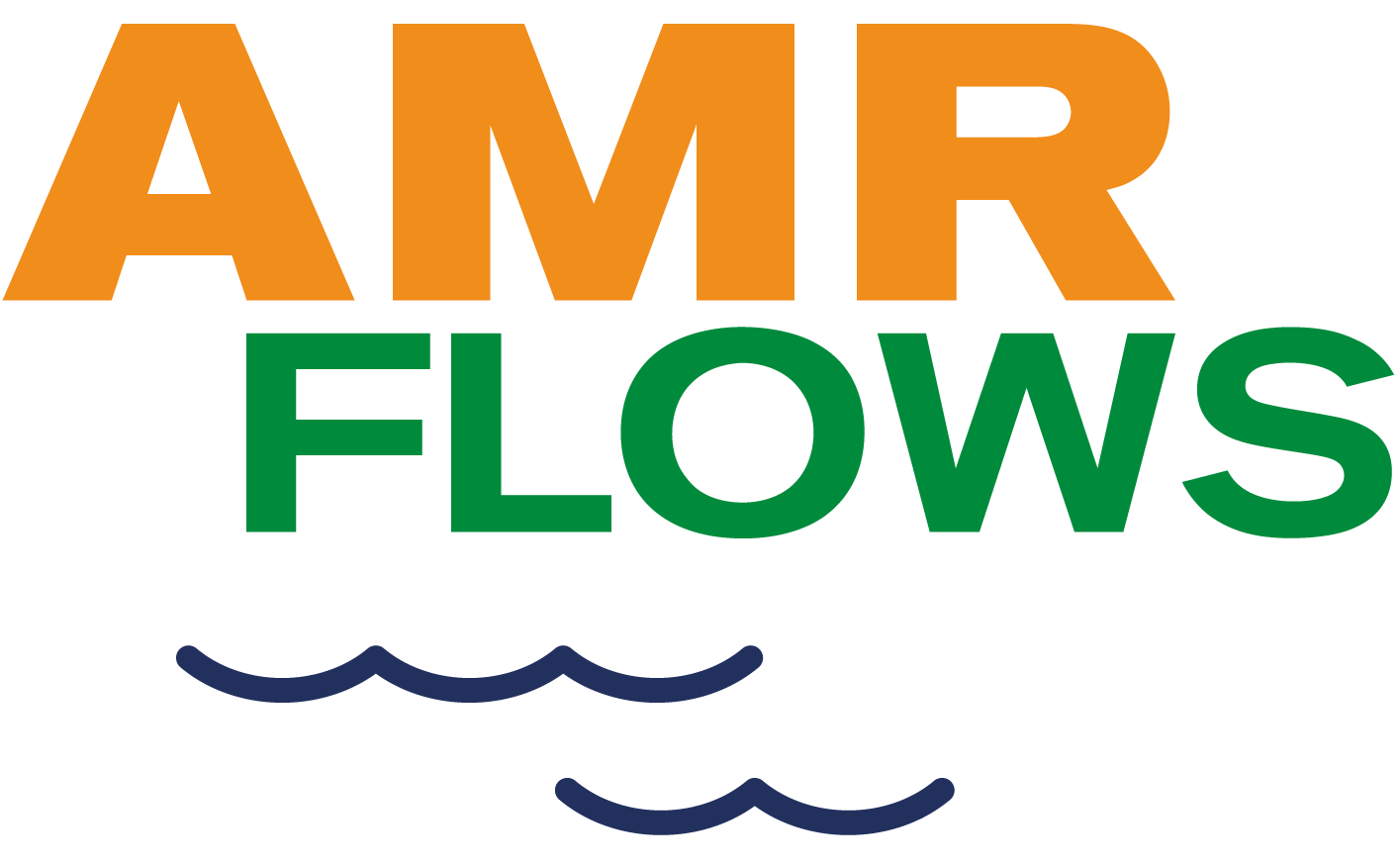Researchers at IIT Gandhinagar
Ankit Modi
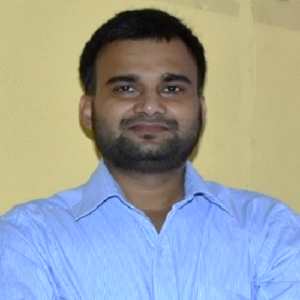
Dr. Ankit Modi received his doctoral and master’s degrees in Environmental Engineering from IIT Kanpur in the department of Civil Engineering under the supervision of Prof. Vinod Tare. He worked on various aspects of river basin management at IIT Kanpur, spanning nine years. In his master’s thesis, he assessed Environmental Flows (E-Flows) and their impact on hydropower generation in the upper Ganga basin. During his Doctorate, he examined the Ramganga river basin’s water storage using an observed hydro-meteorological dataset and evaluated the bio-geomorphologic demarcation of Ganga river floodplains for the middle section of the basin. As part of major and minor projects, he also worked on water balance modelling, baseflow evaluation, and water and wastewater treatment.
He is currently a research associate at the Indian Institute of Technology Gandhinagar (IIT-Gn) under the supervision of Prof. Pranab K. Mohapatra. He is building a hydraulic model for the Musi river basin as part of the AMRflows project. The model will aid in the project’s ultimate goal, which is risk assessment.
Researchers at IIT Hyderabad
Arun Kashyap
Arun Kashyap is currently enrolled as a research scholar in the Department of Civil Engineering, IIT Hyderabad, under the supervision of Prof. Shashidhar. He completed his Bachelor in Technology Environmental Engineering under Mrs. Sakshi Verma’s supervision from Guru Gobind Singh Indraprastha University, Delhi, India. He undertook a minor project in his Bachelor’s degree focused on Mapping of Air Pollutants using ArcGIS and forecasting pollutants using fixed model time series. ArcGIS was looked upon as a tool to assist in decision-making. As a major project, he undertook a case study of a Waste to Energy Plant, Okhla, Delhi, India. It was an eye-opening experience that taught him how burdensome waste could be converted into valuable energy resources. The process of converting waste to energy impacts the environment. He qualified for the Graduate Aptitude Test in Engineering (GATE) in Engineering Science in 2016 and in Civil Engineering in 2017 and 2018.
Later, he completed a Masters in Technology Environmental Science and Technology at NIT Durgapur in the Department of Earth and Environmental Studies under Dr. Supriya Pal’s and Dr. Sufia Kazi’s guidance. The research work was centered around the Bio-stabilization of Cohesive Soil using Microbe-mediated Calcite Precipitation in collaboration with the Department of Biotechnology, NITD. The aim was to bring about stabilization of silty or clayey soil using a naturally occurring microbe (S. pasteurii ) that would not negatively affect the soil-water environment and have potential to be applied in the field. As a student of Environmental Science and Engineering, with six years of involvement in this field, his research interest is water and wastewater treatment, fate and transportation of pollutants in the water environment. He wants to make a humble contribution to the repository of human knowledge and leave behind a legacy for future researchers to carry on. He hopes to make a valuable addition to this AMRflows research work and do his best in bringing laurels to the people and institute involved as a whole.
Rupali Srivastava

Rupali Srivastava joined the IIT Hyderabad in January 2021 for her Ph.D. in the Department of Biomedical Engineering under the supervision of Dr Aravind Kumar Rengan and co-supervision of Professor Shashidhar Thatikonda. She graduated with a BSc with Chemistry and Biochemistry as major subjects from the University of Allahabad, Prayagraj, India. Her enthusiasm and research aptitude developed during her undergraduate studies. To move forward in research, Rupali then pursued a Masters of Science in Biochemistry from the University of Allahabad where she learnt the basics of various experimental techniques such as spectroscopic analysis of any substance, colorimetry and immunology techniques like Ouchterlony double immunodiffusion. She conducted her M.Sc. dissertation under the supervision of Dr Rakesh Kumar Mishra Centre for Cellular & Molecular Biology (CCMB) in Hyderabad where she performed a research project generating a DNA construct for the in vivo analysis of enhancer blocker function in zebrafish. During this project, Rupali learned various techniques such as recombinant DNA technology, Polymerase Chain reaction, Agarose gel electrophoresis, SDS PAGE, injection of recombinant plasmids in single-celled Zebrafish, in vitro transcription of Tol2, gel elution. She also tried to generate an attP construct for the in vivo analysis of enhancer blocker function in Drosophila melanogaster using overlap extension PCR. She qualified in the Graduate Aptitude Test in Engineering (GATE) in 2019 and 2020 in Life Science.
Rupali’s research interest involves antimicrobial resistance. Her role in the AMRflows project is to study the toxicology of ARBs. Using human cell lines and zebrafish, she will compare the infection risk posed by resistant versus sensitive isolates from the environment and the infection risk from water samples containing mixed bacterial communities. In addition, she will determine the differential success of antibiotic treatment.
Shashidhar
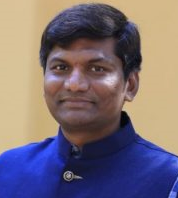
Dr. Shashidhar is a Professor in the Department of Civil Engineering Indian Institute of Technology Hyderabad. He obtained Ph.D. from IIT Madras in 2006. He was the Head of the Department of Civil Engineering from 2018 to 2020. Before joining IITH, He worked as a faculty at NIT Warangal and NIT Trichy. He was a visiting faculty at the Asian Institute of Technology Bangkok, the University of Illinois, Urbana Champaign, and the University of Illinois Santiago De Compostela, Spain. He has been engaged in UG and PG teaching, faculty development programs, and training engineers since 2006. He also serves as a BOS member at various technical universities and colleges. He is an Editorial board member of the ASCE Journal of Hazardous Material and radioactive waste and Guest Editor for the Journal of Sustainability. He is extensively involved in the hydraulic designs of Kaleshwaram Project, the largest multi-stage lift irrigation scheme. He is also involved in developing Amaravati Capital City and various water supply and LI projects of Andhra Pradesh, Orissa, Bihar, Madhya Pradesh, Chhattisgarh, Uttar Pradesh, etc. He has been serving as a member of the Telangana State Pollution Control Board and National Green Tribuna committees. He is involved in several environmental and industrial consultancy projects, including the design of STPs, and the performance evaluation of treatment units. He received the Young Engineer award from the Institute of Engineers, India, and the UBA award from MHRD for implementing Swatchh Bharat Abhiyan in villages. He has contributed to AMR surveillance in and around Hyderabad and developed a mathematical model for the fate and transport of antibiotics & antibiotic-resistant bacteria in aquatic environments since 2014. His research laboratory highly focuses on treating pharmaceutical effluents, exclusively on removing antibiotic residues, antibiotic-resistant bacteria from waste discharge. The other notable contributions include real field projects on bioremediation of heavy metals, pore-scale modeling of microbial transport, microbial interactions in contaminated aquifers, EIA, microfluidics and CFD simulations, hydraulics, hydrology/Hydrogeology, Hydro-climatology, Remote Sensing and GIS applications, development of dielectric barrier discharge (DBD) plasma reactor for the treatment of harmful pollutants, solid and hazardous waste management, design of effluent treatment plants (STP and CETP), and its performance evaluation, industrial waste management & zero-waste discharge technologies, climate change impact on water resources and hydraulic transients.
Vikas Sonkar
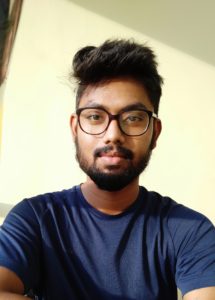
Vikas Sonkar enrolled in January 2021 as a PhD student at the Department of Civil Engineering, Indian Institute of Technology Hyderabad (IITH), India, under the supervision of Professor Shashidhar Thatikonda. He graduated with a Bachelor of Science in Life Science from University of Allahabad, Prayagraj, India (2014 -2017). He then obtained a Master of Science in Environmental Science and Technology from Central University of Punjab, Bathinda, India (2017-2019). There, Vikas worked on “Heavy metal pollution assessment in soil of S.A.S. Nagar district of Punjab, India” as his M.Sc. dissertation under the guidance of Dr Yogalakshmi K N. This work appraised soil pollution by heavy metals in the Sahibzada Ajit Singh Nagar district of Punjab, India, using geochemical indexing approaches and multivariate statistical analysis. Vikas worked as a project assistant (level II) at CSIR-National Environmental Engineering Research Institute (NEERI), Nagpur, India under a DBT funded project entitled “Engineered Bioremediation Approaches for Onsite Treatment of Soil Contaminated with Crude Oil”. His main responsibilities were the assessment of the level of contamination by crude oil (polycyclic aromatic hydrocarbons), bioavailability in soil as well as analysis of soil quality parameters. He also worked as a Junior Research Fellow (JRF) at the National Institute of Hydrology (NIH), Roorkee, India under a DST funded project entitled “Innovation Centre for EcoPrudent Wastewater Solutions (IC-EcoWS)”. His main responsibilities were the implementation of innovative ideas in the phytoremediation of antibiotics from wastewater/aquatic environment through natural treatment systems (NTSs), rejuvenation and restoration of small water bodies, resource recovery and circular economy.
Vikas’ research interests are soil and water quality; fate and transport of contaminants; phytoremediation; resource recovery; circular economy and various technique for sustainable treatment of contaminants in the aquatic environment. In the AMRflows project, he will be responsible for the bathymetric survey of the Musi river, chemical water analysis, and assessment of metals and antibiotics in sediment samples. Vikas will also undertake the mesocosm studies of degradation of antibiotics and antibiotic selection in aquatic environments.
Sai Sugitha
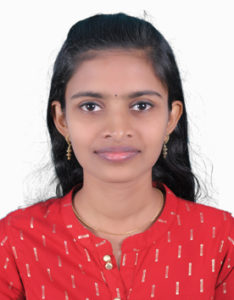
I’m Sai Sugitha S enrolled in January 2023 as Junior Research Fellow (JRF) at the Department of Civil Engineering, Indian Institute of Technology Hyderabad (IITH), India, under the supervision of Professor Shashidhar Thatikonda. I did my Under graduation on B.Sc. Microbiology from CMS College of Science & Commerce, Coimbatore, Tamil Nadu, India (2017-2020). I completed my Post Graduation in M.Sc. Applied Microbiology from PSG College of Arts & Science, Coimbatore, Tamil Nadu, India (2020-2022). During my M.Sc I carried out my dissertation work under the guidance of Dr. K. Kadirvelu (Scientist F & OiC) & Dr. K. Naveen Kumar from DRDO Centre for Life Sciences, Coimbatore, Tamil Nadu, India. The title of the project was “Toxicity of Alpha- cypermethrin on embryonic development of Zebrafish embryos”. During this period, I learned various techniques including Animal Handling- Zebrafish, Molecular techniques- Basic Cell Culture Handling, DNA isolation, Polymerase Chain Reaction, Agarose Gel Electrophoresis and SDS PAGE, Instrument handlings- Light Microscope, Fluorescent microscope, Nanophotometer, Gel Documentation, Cryotome, X-Ray Diffraction (XRD), Dynamic Light Scattering (DLS), Zeta potential, UV-Visible Spectrometry.
My work in AMR flows project is in microbial analysis such as enumeration and isolation of bacteria and antibiotic sensitivity testing, assessment of ARBs & ARGs in water samples. As I’m interested in toxicological studies and also because of my previous experience I’m working on toxicology of ARBs using zebrafish, this study is to compare the infection risk posed by resistant and sensitive isolates from the environment and the infection risk from water samples containing mixed bacterial communities.
Researchers at IIT Madras
Chaitanya J C
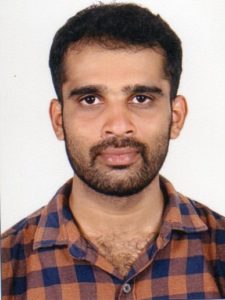
Chaitanya J C is currently enrolled as a PhD research scholar in Hydraulic and Water Resource Engineering at the Civil Engineering Department, IIT Madras, under the supervision of Dr Soumendra Nath Kuiry. He obtained his Bachelor of Engineering in Bala Gangadharanatha Swamy Institute of Technology (BGSIT), Mandya, Karnataka. Then he completed his Masters in Technology in Water Resource Engineering under the supervision of Dr P L Patel, Sardar Vallabhbhai National Institute of Technology (SVNIT), Surat, Gujarat, India, where he secured First rank with Gold Medallist in his Masters. Chaitanya undertook his minor projects in SVNIT related to canal designs. His Dissertation Thesis was “Experimental Investigation of Turbulent Characteristics over Uniform and Non-uniform Sediment Beds”. He has published a short piece of this work in the HYDRO-2019 International conference, Ahmedabad. He has knowledge of Sediment Transport and Rivers. Chaitanya qualified for the Graduate Aptitude Test in Engineering (GATE) five times since 2014. He is very much interested in river engineering, sediment transport and its dynamics.
His role in the AMRflows project is to take part in all tasks related to Hydraulics and Hydrology, for example estimation of dilution factors by finding wastewater and river discharges, bathymetry surveys, discharge measurements and modelling.
Indumathi M Nambi Ph.D
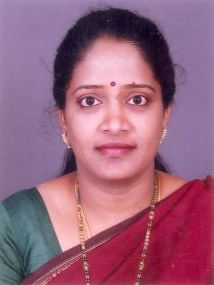
Dr. Indumathi Nambi is a full professor at Environment and Water Resources Division in the Department of Civil Engineering at IITMadras . Before joining IITMadras , she was a postdoctoral research fellow at University of Illinois at Urbana Champaign between 2000 to 2003. She has received her doctorate from Clarkson University, New York and Undergraduate and Masters from Anna University, Chennai.
She has research experience working on groundwater contaminant fate and transport and developing technologies for remediation involving hydrocarbon and solvent spills, and is currently involved in Petroleum, pesticide and Chromium and leachate contaminated site investigations in India. She has been involved in lake restoration activites and development of novel solidwaste management technologies in Chennai. She has published over 100 journal publications She is a member of several expert committees in the Centre and in the state of TamilNadu including Central pollution Control Board, State environment Appraisal committee, Integrated Solid waste Management Project Evaluation committee and serves as the Coordinator of the Centre for Technology Development and Demonstration in IITM A centre which works towards providing sustainable low cost technologies in environment protection for Micro Small and Medium scale industries in Tamil Nadu. She is the Coordinator of Carbon zero challenge contest – an Innovation contest for identifying young entrepreneurs in the field of Energy and Environment.
Thara M V
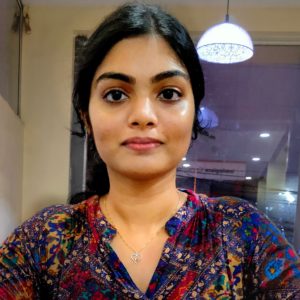
Thara M V is currently enrolled as a Ph.D. scholar in the Environmental and Water Resources Division of IIT Madras, India, under the supervision of Professor Indumathi M Nambi. She completed her Bachelor of Technology in Civil Engineering from Cochin University of Science and Technology, Kerala, India. She also cracked the engineering entrance exam – Graduate Aptitude Test in Engineering (GATE) for Civil Engineering in 2018. Later, she completed her Masters of Technology in Environmental Engineering under the supervision of Dr Lea Mathew, from College of Engineering Thiruvananthapuram, affiliated with APJ Abdul Kalam Technological University, Kerala, India. Her Master Thesis was “A study on Antibiotic Resistance among Bacteria in selected water sources of Trivandrum city”, funded by the Kerala State Pollution Control Board. Her work objectives included the study of the prevalence of antibiotic resistance in selected water sources and comparing the removal efficiency of some of the existing water treatment technologies in various wastewater treatment plants. The major findings included bacteria having a hospital source of origin exhibited 100% resistance to the antibiotics tested and all bacterial isolates irrespective of their source of origin showed susceptibility to the antibiotic Amikacin.
Her research interests are water and wastewater treatment, finding the prevalence of antimicrobial resistance in wastewaters, and various wastewater treatment technologies for the removal of antibiotic resistance. Hence, she is very excited to be a part of the AMRflows team with members from diverse backgrounds and organizations. She hopes to make a significant contribution to the AMRflows research work.
Rama Vaidyanathan
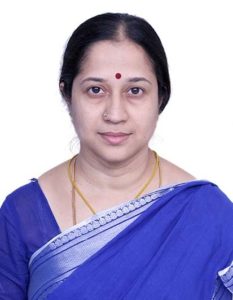
Rama Vaidyanathan is a Professor of Biotechnology at Dr MGR Educational and Research Institute. She has expertise in microbiology, molecular biology and genomics. She has worked on the molecular mechanisms of antimicrobial resistance in clinical isolates of Klebsiella pneumoniae. Her group has identified the role of plasmid mediated quinolone and carbapenem resistance in clinical Klebsiella pneumoniae isolates. Assays for identifying carbapenem resistant isolates have been evaluated and a modified assay to differentiate oxa-48 like carbapenemases from NDM carbapenemases has been developed. A hypermucoviscous, biofilm producing multidrug resistant isolate has been characterized by NGS methods. This isolate is useful to conduct antibiotic efflux inhibition assays. A component of Punica granatum rind extract – punigratane which has an efflux inhibition activity has been characterized. She is also involved in a project using metabarcoding to document biodiversity of insects such as mosquitoes in India.
In the AMR Flows project, Rama is a mentor for the IIT – M team for microbiology, molecular biology and bioinformatics. She has been helping students in qPCR assays, AST analysis and other microbiological studies.
Kiruthika Eswari V
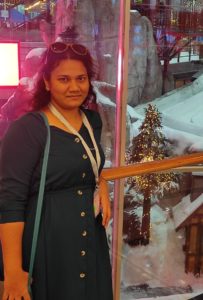
Kiruthika Eswari V is a research scholar, at the Department of Civil Engineering, IIT Madras. She completed her Bachelor’s in civil engineering at Bannari Amman Institute of Technology, Erode, India(2010-2014). Later she obtained her Master’s in Environmental Engineering from Thiagarajar College of Engineering, Madurai, India (2017). Her master’s thesis focuses on the Removal of emerging pollutants (pharmaceutical compounds) by membrane bioreactor (MBR) coupled with adsorption.
Her Ph.D. work focus on photocatalytic degradation of antibiotics, antibiotics resistant bacteria (ARB), and Antibiotic resistance gene (ARG). Her research interest also includes the use of waste-derived chars for photocatalyst preparation. She was awarded Indo-German Centre for Sustainability (IGCS) fellowship to work at Christian-Albrecht-University. Kiel, Germany. She also worked as a Junior research fellow (JRF) at IIT Madras on a DST-funded project.
In AMRflows, she is responsible for LC-MS/MS method development for antibiotics and analysis of the same in environmental samples.
Researchers at The James Hutton Institute
Mads Troldborg
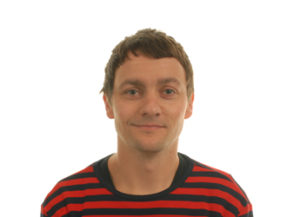
Dr Mads Troldborg is an environmental engineer with a broad research profile. His research has generally been centred on the development and application of new practical modelling approaches for environmental risk assessment and uncertainty estimation with the ultimate aim of informing and supporting decision-making. Most of his research to date has been focussed on contaminant transport and fate in soil-water and groundwater systems and on quantifying contaminant exposure and risk.
He studied environmental engineering at the Technical University of Denmark; here he also completed his PhD on developing models for risk assessment and uncertainty estimation of point source groundwater contamination. After this, he joined the James Hutton Institute (JHI) in Aberdeen as a research scientist in human and ecological risk assessment. While at JHI, he started using Bayesian Networks (BNs) as an approach for modelling complex systems for which knowledge and data are uncertain. His role in the AMRflows project is to use such an BN approach to develop a generalised risk assessment model that integrates the findings from the detailed mechanistic modelling and experimental work carried out as part of the project.
Researchers at the University of Newcastle
Colin Harwood

Colin Harwood is Professor of Molecular Microbiology at Newcastle University’s Centre for Bacterial Cell Biology. He obtained a BSc in Biological Sciences from London University and a PhD in Microbial Genetics from Leeds University under the supervision of Professor Simon Baumberg. Following his PhD, Colin was appointed as a post-doctoral fellow at Kent University with Professor Guy and Dr Elinor Meynell, pioneers in the study of conjugal plasmids, incompatibility and conjugation. His first Nature paper, with Elinor Meynell, was on the impact of the catabolite repression system of Escherichia coli on sex pilus production. In 1982, he had a 12-month sabbatical in Stockholm, Sweden, working at KabiGen AB, one of the world’s first genetic engineering companies. Since his appointment at Newcastle University, the focused much of Colin’s research has been on bacteria of the genus Bacillus. He was part of the international programme to sequence Bacillus subtilis, one of the first genome sequencing projects. He also led, or was part of, EU funded and other international consortia studying Bacillus protein secretion, responses to environmental stresses, and systems biology. These international efforts led to two landmark papers in Science on the high-level regulatory architecture and network reorganization in Bacillus subtilis. More recently, he was a member of the Flower’s Consortium, providing an infrastructure for platform technology in synthetic biology, and the iSense interdisciplinary research collaboration developing early warning digital sensing systems. Colin has published more than 120 research papers and has provided consultancy and training workshops to many of the world’s largest biomanufacturers. He has been invited to present his research throughout Europe, Asia and the US and was honorary special lecturer at Kazan (RU) and Rikkyo (JP) Universities. He is an Honorary Member of the Microbiology Society and is currently a Director of the Federation of European Microbiology Societies (FEMS), responsible for finance.
Colin’s role in the AMRFlows project is to generate data on the kinetics of antibiotic resistance plasmid transfer under various environmental conditions.
David Graham

David Graham is Professor of Ecosystems Engineering at Newcastle University, and performs applied and fundamental research in engineering, ecology, molecular microbiology, and public health. He obtained early degrees in Civil Engineering at University of British Columbia in Canada and, after eight years in industry, obtained his PhD in Environmental Engineering from the University of Arizona. Graham was a professor at the University of Kansas for 12 years where he studied relationships between agrochemical use, and water, soil, and food quality, including the fate of antimicrobial resistance (AMR) bacteria and genes. This expertise included assessing risks of waterborne infectious disease spread in the US water supply due to biowarfare after 9/11.
His work has now expanded to general causes of globally increasing acquired AMR, including field and clinical projects in India, China, Bangladesh, Malaysia, Europe, and the Americas. His main current interest is developing combined technical/social AMR mitigation strategies, including novel and sustainable wastewater treatment technologies, for the emerging and developing world. Graham is an advisor to the UK and US governments on environmental transmission of AMR and SARS-CoV-2, including as a member of the Expert Team who provides scientific guidance to the UK Scientific Advisory Group for Emergencies on the Covid-19 pandemic. He also advises the World Health Organisation on AMR issues, especially related to water quality.
Rebeca Pallarés Vega
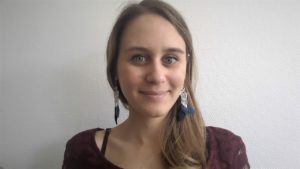
Rebeca Pallarés Vega (Palencia, Spain) studied a BSc in Biology at the University of Salamanca (Spain). Still broadly interested in many different disciplines of biology, she decided to pursue an MSc in Advances and Research in Microbiology at the University of Granada (Spain). Rebeca moved to Leeuwarden (The Netherlands) in 2015 to do her MSc internship at the water research centre Wetsus, where she first became acquainted with antimicrobial resistance. During her nine-month project, she investigated the resistant genetic profile of bacteria isolated from hospital wastewater. After completing her internship, Rebeca was granted a PhD position at TU Delft and Wetsus in close collaboration with industrial stakeholders and water authorities. During her PhD, Rebeca has focused on evaluating the presence and removal of Antimicrobial Resistance Genes (ARGs) in wastewater and biosolids. Her main goal was to identify the role of wastewater design, operational parameters, and abiotic factors (i.e. rainfall) in ARGs removal dynamics. Besides, Rebeca has investigated different conditions that could influence the spread of ARGs through conjugal transfer of plasmids in both in vitro and in situ (microcosm) set-ups. The latter were performed at the University of Copenhagen in collaboration with the group of Professor Sorensen. In 2020, Rebeca joined the EU2020 project REPARES on behalf of Wetsus. There, she worked in method standardization and transfer across the consortium partners.
From May 2021, she joined the research group of David Graham at Newcastle University as a Research Assistant to continue studying the dynamics of plasmid transfer within the AMRflows UK-India framework. This work will be conducted in collaboration with Professor Colin Harwood from the Centre for Bacterial Cell Biology at Newcastle University. Rebeca will also support IITH colleagues with the surveillance of ARGs in Musi and Adyar rivers.
Researchers at the University of Birmingham
Siu Fung Ho

Siu Fung Ho (Stanley) earned an MBio degree in Medical Microbiology and Virology from the University of Warwick. Following this, they worked as a research technician at the Blizard Institute, Queen Mary University London, where they were involved in a project examining the impact of the gut microbiome on Crohn’s disease in paediatric patients. After completing this position, they were offered a PhD position on the Wellcome Trust Antimicrobials and Antimicrobial Resistance doctoral training program at the University of Birmingham. During their master’s year rotations, they worked with Professor Nigel Minton, at the University of Nottingham, to explore the function of specific tail proteins in C. difficile phages. They also investigated the drivers of antibiotic resistance in the rural and urban surface waters and sediments of Bangladesh using Nanopore metagenomics. Stanley is currently completing their PhD under the supervision of Professor Willem van Schaik, at the University of Birmingham, where they have focused on studying the gut phage dynamics of critically ill patients using various sequencing techniques and bioinformatic pipelines.
As part of the AMRFLows project, Stanley will be creating bioinformatics training materials aimed at providing a comprehensive analysis of metagenomic sequencing data. This will include teaching basic command line interface usage, sequence quality control, taxonomic profiling, antimicrobial resistance gene detection, and the construction of metagenome-assembled genomes.
Jan-Ulrich Kreft

Dr Kreft is a microbiologist turned mathematical modeller. His research interests revolve around the interactions between microorganisms with each other, the environment and host organisms. He believes we need to use mathematical modelling to make quantitative predictions that can be challenged by data so we can test our understanding of nature. For example, Dr Kreft applied mathematical modelling to understand the dynamics of resistance plasmids in the environment where spatial structure and a diversity of microbes are prevalent yet disregarded in laboratory experiments. Recently, he started modelling activated sludge to look at AMR dynamics in sewage treatment.
He studied biology at the Universities of Konstanz and Tübingen in Germany, then did his PhD with Professor Bernhard Schink at Konstanz, looking at the biochemistry of anaerobic degradation of plant compounds in the then newly discovered, weird anaerobe he later named Holophaga foetida. After this, he decided to go into mathematical modelling to be able to address fundamental questions. He obtained a DFG fellowship and went to Professor Julian Wimpenny at Cardiff University, where he started individual-based modelling of microbes. Dr Kreft then joined the Theoretical Biology group at the University of Bonn in Germany as a “Wissenschaftlicher Assistent”, where he broadened his research topics and mathematical methods. He joined the University of Birmingham in 2007 as a Lecturer in Computational Biology (Assistant Professor), now Senior Lecturer (Associate Professor) and took this opportunity to start his own wet lab to be better able to test and parameterize his mathematical models.
Anjali Vasudevan

Anjali Vasudevan joined the School of Biosciences at the University of Birmingham as a PhD student in September 2021 under the Dr. Jan-Ulrich Kreft as the Principal supervisor and Dr.Danesh Moradigaravand as the co-supervisor. Before joining for her PhD, she did a bachelor’s degree in Biotechnology from Amrita School of Biotechnology, Amrita University, Kollam, Kerala, India (2016-2019). Her bachelor’s project was on identifying the role of pathogenic organisms in maintaining bone homeostasis. She then pursued a master’s degree in Bioinformatics from Union Christian College, Aluva, Kerala, India (2019-2021). She did a 2-month summer internship with the Council of Scientific and Industrial Research (CSIR) -NEIST, India and worked on Prediction of B cell epitopes from the Nucleocapsid protein of SARS-CoV2 combining sequence based and molecular docking approaches (July-August 2020).
Her part in the AMRFlows project includes prediction of selective windows using mathematical models and the prediction of concentrations of antibiotics in different compartments like the gut, sewer, treatment plant and the river. She will then be using the measurements to calibrate the predictions and combine the compartments where selection happens and testing the predictions using data from field experiments. She will be comparing the results from both India and UK in the end. Anjali’s PhD is funded by the Darwin Trust of Edinburgh.
Cansu Uluşeker
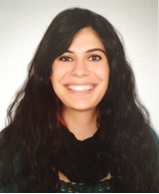
Cansu Uluşeker is a mathematical modeller. Her research is focused on the development of predictive mathematical models in synthetic and systems biology. She studied a BSc in Elementary Mathematics Education at METU in Turkey. She was interested in the application of mathematics in different fields. Therefore, she decided to pursue a Joint Erasmus Mundus MSc run by 4 European universities in mathematical engineering with a specialization in life and social sciences. Her thesis work was devoted to the modelling of leptin hormone for the insulin-glucose system for diabetes Type 2. Cansu was granted a PhD position at the University of Trento in collaboration with the Microsoft Research Center for Computational and Systems Biology. During her PhD, she developed a framework to simulate and analyse biological regulatory systems by integrating different layers of regulatory information. She worked on two projects. First, she applied a multi-level modelling approach to build a closed-loop whole-body model of glucose homeostasis, Moreover, Cansu modelled the transcriptional regulatory network of phosphate starvation response in Escherichia coli. After this, Cansu joined the University of Stavanger in Norway as a postdoctoral fellow in the JPIAMR project Genegas. There, she first became acquainted with antimicrobial resistance and developed a mathematical model to better understand and predict the spreading of resistance genes in the wastewater treatment plant.
From December 2021, Cansu joined the research group of Jan Kreft at the University of Birmingham as a Research Associate to model AMR dynamics in rivers in India. She will develop a mathematical model to understand Antimicrobial Resistance (AMR) dynamics in the rivers polluted environment and to predict antibiotic concentration in the rivers in India.
Willem van Schaik
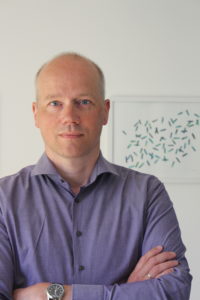
Willem van Schaik is Professor of Microbiology and Infection in the Institute of Microbiology and Infection of the University of Birmingham. Professor Van Schaik obtained his PhD degree in microbiology from Wageningen University in the Netherlands in 2005. He then did post-doctoral studies on an EMBO Long-Term Fellowship at the Pasteur Institute (Paris, France). In 2007, he moved to the University Medical Center Utrecht in the Netherlands, where he set up his own research group on antibiotic resistance in 2010. Prof Van Schaik moved to the University of Birmingham in April 2017. He has received grants from The Netherlands Organisation for Scientific Research, the European Commission, the Joint Programming Initiative on Antimicrobial Resistance (JPIAMR), The Royal Society, and BBSRC. He was awarded a Royal Society Research Merit Award in 2017 and since 2020 is Director of the Institute of Microbiology and Infection of the University of Birmingham.
The research group of Professor van Schaik combines experimental tools in molecular biology and biochemistry with the opportunities offered by the development of novel, high-throughput DNA sequencing technologies and bioinformatics to elucidate the mechanisms by which harmless commensals transition into multi-drug resistant opportunistic pathogens. In addition, he studies the role of complex microbial ecosystems, in particular the human gut microbiome, as reservoirs of antibiotic resistance genes (‘the resistome’).
Previous Project Contributors
Researchers at IIT Hyderabad
Krishna Kumar Avusula
Krishna Kumar is an Environmental Engineer with a background in Civil Engineering. He graduated with a Bachelor of Technology in Civil Engineering from Kakatiya University, Warangal, Telangana, India. He then pursued a Master of Technology in Environmental Engineering from Sardar Vallabhbhai National Institute of Technology (SVNIT), Surat, Gujarat, India. There, Krishna Kumar conducted his MTech dissertation under the supervision of Dr Kunwar D Yadav on “Assessment of groundwater quality for irrigation purpose using irrigation indices and study on impact of flower waste compost on soil properties”. His work appraised ground water using chemical indices and soil, which are affected by sea water intrusion in the coastal stretch of Surat district of Gujarat, India. Through his dissertation, he gained experience in handling spectrophotometers, flame photometers etc. Moreover, he was involved in minor projects such as “Evaluating effect of natural coagulants in removing turbidity from washing machine discharge” and in a study of microbial fuel cells in wastewater treatment. He was associated with one of the environmental auditors (Pollucon laboratories) of Gujarat Pollution Control Board (GPCB) and actively participated in auditing activities, ambient air and stack monitoring for various industries. After his Masters, Krishna Kumar worked as Intern at the World Resources Institute-India (WRI-India), where he worked on the Hussain Sagar Lake rejuvenation project and Wetlands. He was involved in monitoring, evaluation, mapping and analysis of a floating solid waste clean-up system. He was also involved in reconnaissance along the Musi river stretch to scaleup the floating solid waste clean-up system at different locations along the Musi river. He also coordinated with Musi Riverfront Development Corporation Limited (MRDCL) for implementation of the floating solid waste clean-up system. He qualified in the Graduate Aptitude Test in Engineering (GATE) in 2018 and 2021 in Civil Engineering.
Krishna Kumar joined the IIT Hyderabad in September 2021 as a Technical Assistant in the Department of Civil Engineering, IIT Hyderabad, under the supervision of Professor Shashidhar Thatikonda. His role in the AMRflows project is primarily the chemistry – extraction of antibiotics and heavy metals from environmental samples and the qualitative and quantitative analysis of antibiotics & heavy metals.
Madhusree Gangopadhyay
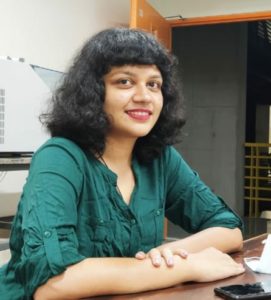
Madhusree Gangopadhyay joined IIT Hyderabad in January 2021 as a PhD student. She is currently working under the supervision of Professor Shashidhar Thatikonda and Dr. Aravind Kumar Rengan. She will be doing the microbial analysis, the assessment of ARBs & ARGs in sediment samples. Metagenomic analysis for both environmental samples & mesocosm studies will also be done by Madhusree. She received a B.Tech in Biotechnology from Neotia Institute of Technology Management and Science (West Bengal University of Technology affiliated). Afterwards she did her M.Tech in Biotechnology (Specialization in Medical Biotechnology) from IIT Hyderabad.
She is very much interested in microbiology and antimicrobial resistance always fascinates her. During one of her B.Tech projects, she worked on Ciprofloxacin resistance and there she grasped all the useful techniques related to microbiology. Other than that, she did two projects in Jadavpur University and Calcutta School of Tropical Medicine where she worked on Peritoneal sarcoma as well as microbiology. She is basically trained in several molecular biology, microbiology and cell biology techniques. While doing projects, she learned cloning, expression in bacterial cells, protein purification, protein engineering, EMSA, ELISA, mutagenesis study of proteins, characterization of proteins and DNA structure using CD spectrophotometer. She is equally interested in programming languages so she learned Python and R. She has also done courses on cell culture and learned electroporation, cell passaging, cryopreservation and other basic cell culture techniques.
Navami Koyande
Navami Koyande is currently working as a Junior Research Fellow under the guidance of Professor Shashidhar Thatikonda in the Department of Civil Engineering at the Indian Institute of Technology (IIT), Hyderabad. She completed a Bachelor’s degree in Science in Biotechnology from Vivekanand Education Society’s College of Arts, Science & Commerce, Mumbai (Affiliated to University of Mumbai). There, she did an undergraduate research project on “Study of variation in biofilm formation, haemolysis activity and pigment production by Pseudomonas aeruginosa under aerobic and anaerobic conditions.” Then, she completed her Masters of Science in Biotechnology from S.I.E.S. College of Arts, Science and Commerce (Autonomous) (Affiliated to University of Mumbai). The title of her dissertation project was “Analyzing the levels of LCN2 and xCT in the prolapsed rectal tissue region of Pkp3fl/fl;Apcmin; VillinCre mice”. In this project, she worked with colorectal cancer mouse models and analyzed the mRNA and protein levels of LCN2 and xCT, which have a critical role in protection against ROS in Plakophilin 3 knockout mice. During her dissertation, she gained experience in animal handling, various molecular biological techniques like PCR, Reverse Transcriptase PCR, Real Time PCR, DNA and RNA isolation, etc and various techniques like immunofluorescence staining and confocal microscopy, HPLC, spectrophotometry. She also obtained two short internships at the Food and Drug Administration (FDA) and Padmaja Aerobiologicals Pvt. LTD. (PAPL), where she became familiar with basic techniques used in the analysis of different samples and received training in some basic procedures for checking the purity of samples.
Her research focus in the AMRflows project is in microbial analysis such as enumeration and isolation of bacteria and antibiotic sensitivity testing, assessment of ARBs & ARGs in water samples and finally metagenomic analysis for both environmental samples & mesocosm studies. Navami has always been fascinated by molecular biology and microbiology, so she is happy to apply these concepts now to solve the global issue of antimicrobial resistance.
Researchers at IIT Madras
Anantha Barathi Muthukrishnan
Dr Anantha Barathi Muthukrishnan is a research associate at IIT Madras, India. She works in the field of Biotechnology with Prof. Guhan Jayaraman and also in antimicrobial research with Prof. Indumathi M Nambi. Basically, she is a molecular microbiologist and obtained her PhD in Prof. Andre S Ribeiro’s lab of Biosystem dynamics, Department of signal processing, Tampere University, Finland in the year 2014. Her Doctoral thesis was in the field of microbial heterogeneity and the plasticity of bacteria at the transcriptional initiation level. She conducted this study at the single-cell and single-molecule level using advanced microscopy, gene expression analysis, gene expression models and image analysis techniques.
Post PhD, she has been working in diverse areas of molecular microbiology such as microbial conversion of lignin using adaptive laboratory evolution techniques, strain improvement by metabolic engineering/synthetic biology approaches for high value chemicals production from bacteria. Recently, she became also interested in antimicrobial resistance (AMR) research. Her studies seek to understand the patterns, evolution and changes at the molecular level. She decided to work in this area since AMR is emerging as a major threat to mankind and our environment. Her research expertise and educational background in microbial genetics both at the population level and single-cell level enables her to work, learn and contribute to this interdisciplinary area. Therefore, she is very excited to be part of this AMRflows team with members from various backgrounds and organisations.
Researchers at the University of Newcastle
Panagiota Adamou
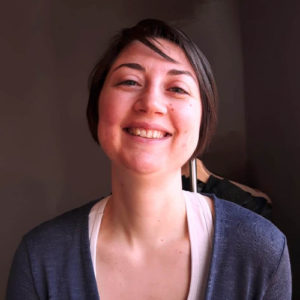
Dr Panagiota Adamou studied biology at the Aristotle University of Thessaloniki in Greece and did her Masters in Environmental Engineering at the University of Seville in Spain. She was recently awarded a PhD in Engineering by Newcastle University, entitled “Assessing treatment technologies for reducing antibiotic resistant gene abundance and diversity in domestic wastewater treatment effluents”. During her postgraduate research, she broadened her knowledge in areas which are highly relevant to future challenges to the water sector, including the control of antimicrobial resistance dissemination by conventional and advanced water treatment processes. Her research focused on assessing the efficiency of treatment technologies at reducing antibiotic resistance genes from domestic wastewater, where she enhanced her skills in molecular biology with a focus on antibiotic resistance gene quantification using qPCR and high throughput qPCR techniques. She worked on solving complex scientific problems and became competent in detailed analysis and interpretation of large-scale data. Afterwards, she worked as a Senior Scientist at Cignpost Diagnostics leading a small team of scientists to assess the presence of SARS-COV-2 in clinical samples, where she gained knowledge in RNA extraction protocols and RT-PCR. She is currently Senior Research Technician in David Graham’s research group at Newcastle University where she is involved in a project related to wastewater-based epidemiology on SARS-CoV-2 and the AMRflows project in India. Her main expertise and contribution to the latter project is high throughput qPCR data analysis aiming to track a wide range of antibiotic resistance genes in target areas in India that are highly affected by anthropogenic activities.
